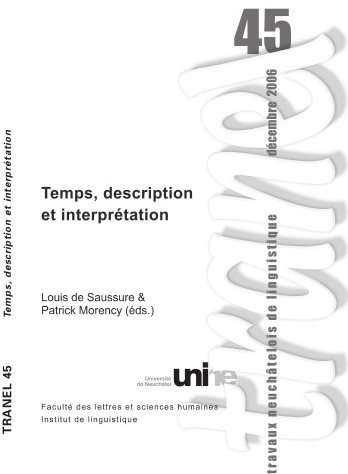Le modal italien dovere au conditionnel: évidentialité et contraintes sur l’inférence des relations de discours argumentatives
DOI :
https://doi.org/10.26034/tranel.2006.2725Résumé
This paper proposes a semantic analysis of the "epistemic" interpretations of the Italian modal verb dovere with the conditional tense, taking as a starting point the underspecified modal semantics of both the modal verb and the conditional form. The analysis focuses in particular on the difference between epistemic readings of dovere in the indicative and conditional moods. We observe a number of constraints imposed by the "epistemic" reading of the conditional form of dovere over argumentative sequences in discourse, which are not imposed by the indicative form. On this basis, we suggest that the "epistemic" reading with the conditional emerges as a pragmatic free enrichment after alethic or deontic saturation of the modal basis of dovere in a hypothetical frame, whereas with the indicative, the modal saturation is truly doxastic, implying a metarepresentation of speaker’s beliefs, and thus transforming dovere into an evidential for the concerned inference.


